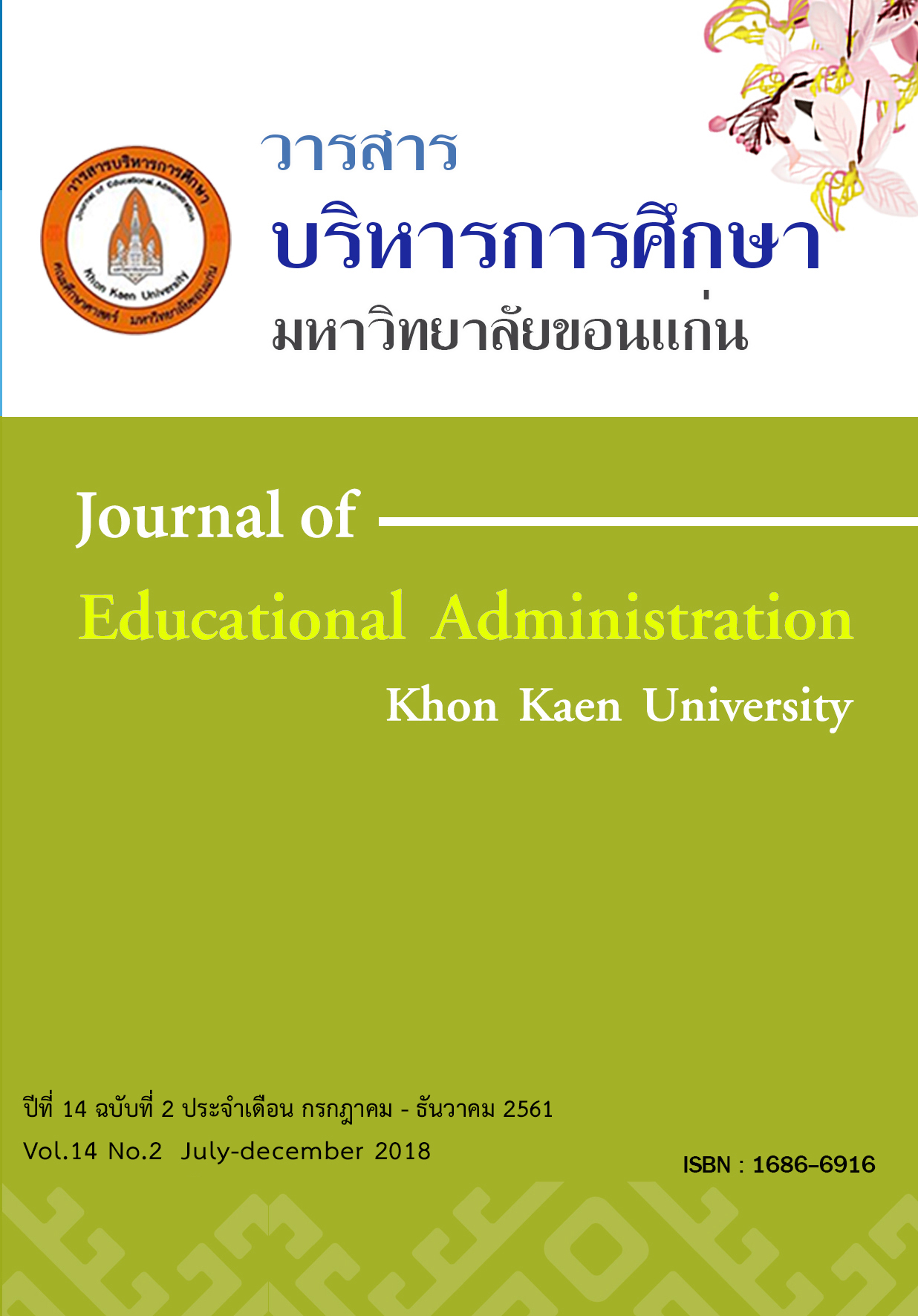THE DEVELOPMENT OF MORALITY TRAINING CURRICULUM FOR PRIVATE TEACHERS IN SCHOOL UNDER SAKON NAKHON
Main Article Content
Abstract
The objectives of this study were to 1) build a moral enhancement training curriculum for private school teachers under Sakon Nakhon Primary Educational Service Area Office 2; 2) evaluate the efficiency of the developed training curriculum on its appropriateness and congruence and 3) create a user manual for the developed training curriculum. The study was divided into 4 phases. The first phase was the studying and analysis of basic information, which was used in building the training curriculum and creating its user manual in the second phase. The third phase was efficiency evaluation of the draft training curriculum and the fourth phase was the improvement of draft training curriculum. The population and sample group in this study consisted of 230 private school directors and teachers under Sakon Nakhon Primary Educational Service Area Office 2 in the academic year B.E. 2558, selected with purposive sampling and simple random sampling. Statistics employed in data analysis were mean and standard deviation.
The study yielded the following results.
- The developed moral enhancement training curriculum for private school teachers under Sakon Nakhon Primary Educational Service Area Office 2 comprises 5 components, which are 1) rationale; 2) curriculum objectives; 3) content structure; 4) training activities and 5) measurement and evaluation.
- The efficiency of the developed training curriculum could be explained as follows.
2.1 In an overall, the IOC of the developed moral enhancement training curriculum is at x= 0.80. When considering each component, it is found that the IOC of each component is between 0.58 - 1.00.
2.2 The appropriateness of the developed moral enhancement training curriculum is at the highest level with X=4.05. Each of its component also has the appropriateness at a high level.
3. The user manual for the developed training curriculum comprises the instruction on using the manual, rationale, curriculum objectives, curriculum content, training activities, training media, measurement and evaluation, training participant qualifications, trainer qualifications, training process, training schedule, training module structure, module, pre-test and post-test on moral knowledge and understanding for teachers, satisfaction evaluation form, guideline on training and guideline on conducting training summary and outcome report.


